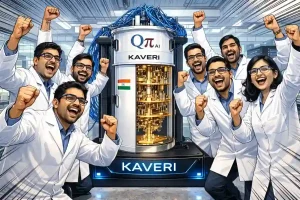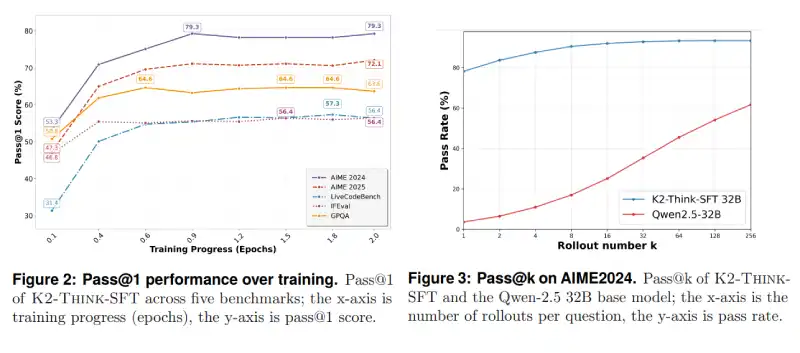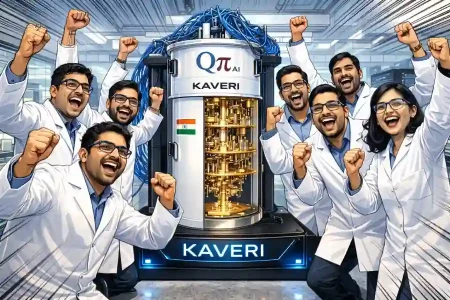In the high-stakes AI world where success is often measured by size, a compact LLM from the Middle East is giving Western models a run for their money, writes Satyen K. Bordoloi.
The mantra of the AI world has always been simple: more is good, and bigger is better. Take the United States and China as examples: Both have been engaged in a colossal arms race, building models with hundreds of billions of parameters, requiring immense computational power and capital. China’s DeepSeek in January challenged the US’ supremacy. And now, a model from an entirely unexpected corner of the world is adding to that counter-narrative against size.
In September, the Mohamed bin Zayed University of Artificial Intelligence (MBZUAI) and technology group G42, both headquartered in Abu Dhabi, UAE, unveiled K2 Think, an open-source AI model with a modest 32 billion parameters and claims of rivalling the reasoning capabilities of models twenty times its size.
With this step, the UAE enters the chatroom of a global AI arms race, challenging the notion that only the world’s largest tech companies can push the boundaries of artificial intelligence.
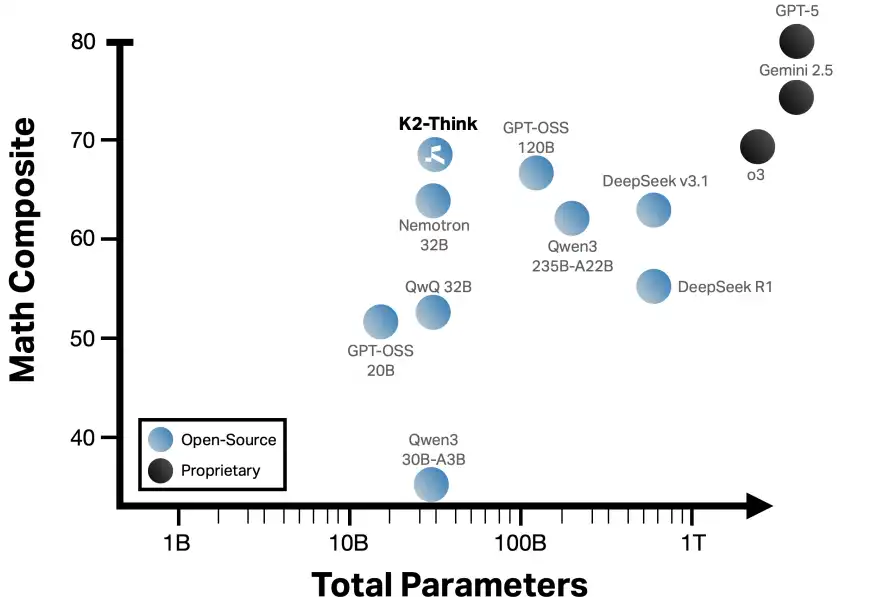
The Genesis of K2 Think: Smarter, Not Larger
K2 Think is a specialised reasoning model, which, unlike a general-purpose large language model designed for chat, has been fine-tuned to tackle complex, multi-step problems in mathematics, coding, and science. Its creators have described it as “as much method as model,” to underline that its true innovation lies in its sophisticated design rather than scale.
The model is the latest product of the UAE’s strategic investments in AI. It was built on the legacy of its predecessor, K2-65B, released in 2024 as the “world’s first fully reproducible open-source foundation model”. K2 Think takes this further by open-sourcing the entire post-training pathway for reasoning, offering a level of transparency not seen in an industry often dominated by black-box systems.
The Six Pillars of Innovation
A paper written mostly by Chinese researchers from the Institute of Foundation Models, MBZUAI, on the model, highlights the reasons for the breakthrough performance of K2 Think, which rests on a half-dozen technical innovations that work in concert. These are:
Long Chain-of-Thought Fine-Tuning, i.e. the model being trained on lengthy, detailed examples of problem-solving, teaching it to navigate complex reasoning processes rather than jump to immediate answers like other LLMs.
Reinforcement Learning with Verifiable Rewards, under which the model is rewarded for arriving at answers that could be objectively verified as correct, thus improving its accuracy.
Agentic Planning Before Reasoning, a novel approach inspired by cognitive science, involves the model first restructuring the concepts in a problem, thereby creating a plan before it begins the formal reasoning process. This leads to more concise and accurate outputs.
Test-Time Scaling, a technique that provides the model with additional computational power during the inference phase (when it’s answering a query), allowing it to “think” harder and explore multiple solution paths before selecting the best one.
Speculative Decoding, which is an optimisation method that speeds up the model’s response time without sacrificing quality.
Inference-Optimized Hardware, which means K2 Think runs on specialised Cerebras Wafer-Scale Engine (WSE) systems, which are alternatives to traditional Nvidia GPUs. According to the researchers, this hardware enables remarkable efficiency, delivering a throughput of up to 2,000 tokens per second.
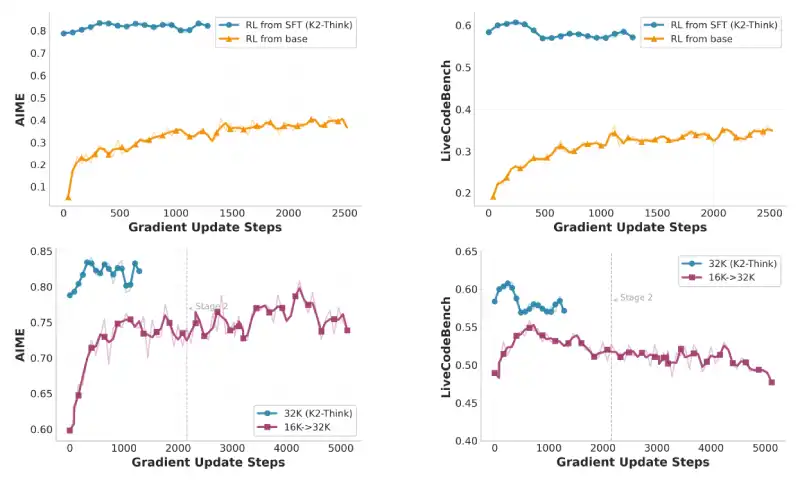
The UAE’s Calculated Ascent in AI
The headlines K2 Think is generating are not an isolated event. It is the culmination of a decade-long, state-level strategy by the UAE to position itself as a global leader in AI. In 2017, it released the UAE National Strategy for Artificial Intelligence 2031, intending to position the UAE as a global AI leader by 2031.
It had an eight-pronged focus, encompassing building an AI reputation, creating a fertile ecosystem for AI, integrating AI into government services, developing talent, and establishing a world-class research infrastructure and a supportive regulatory framework. It aims to transform the nation into a global hub for responsible AI by leveraging data, fostering innovation, and applying AI across key sectors such as healthcare, education, transportation, and energy.
This resulted in many first-mover policies, led to substantial sovereign investment, and a focus on international partnership. In 2017, the UAE became the first nation in the world to appoint a Minister of State for Artificial Intelligence. The establishment of MBZUAI in 2019 marked the world’s first graduate-level research university dedicated to AI. The Technology Innovation Institute (TII) is releasing Falcon, a top-rated open-source large language model, signalling the country’s technical capabilities in 2023 and of course, the release of K2-65B last year.

UAE has shown a strong commitment to open-source models in its AI push, one that is tailored for underserved languages and communities. Before K2 Think, MBZUAI and its partners launched Jais (for Arabic), Nanda (for Hindi), and Sherkala (for Kazakh). This has helped the UAE build a unique profile in the AI landscape, differentiating it from the proprietary models of Western and Chinese companies.
The UAE has also aggressively pursued partnerships with leading American technology firms. Notably, Microsoft invested $1.5 billion in G42 last year, followed by a series of announcements in 2025, including plans for a $100 billion AI infrastructure partnership (Stargate) involving OpenAI, Microsoft, and the UAE’s MGX fund.
The success of K2 Think thus has profound implications for the Global South. It suggests a potential path towards a more equitable and decentralised AI ecosystem by democratising access to advanced AI models for startups, academic researchers, and smaller nations that cannot compete in the trillion-dollar compute race of tech giants. This also serves as a great example of ‘sovereign AI’, i.e., a model developed by a nation to promote technological independence, a concept that other countries could also emulate. Most importantly, by making its data, weights and code fully available, K2 Think invites both global scrutiny and collaboration.
This last bit has led to some interesting findings that contradict the paper published.

The Critique of K2 Think
The triumphant narrative surrounding K2 Think has led to significant scepticism from parts of the academic community, many casting doubt on the veracity of its claimed performance. Shortly after its release, researchers from institutions including ETH Zürich published a detailed critique alleging that several critical flaws compromised the model’s benchmark results, the primary being data contamination, unfair evaluation methodology, pointing out that while K2 Think’s paper compares ‘best-of-3’ performance, it does not do the same for the other models it was being evaluated against.
There has also been criticism that alleges misrepresentation of competitors’ capabilities by testing them with suboptimal settings and on outdated versions. Even its ‘transparency’ was revealed to be a double-edged sword as security researchers demonstrated that the detailed, plain-text reasoning logs, intended to build trust, could be exploited to “jailbreak” the model.
Despite these valid criticisms, the broader significance of K2 Think and the movement it represents should not be dismissed. The model has become a powerful symbol, proving that the global conversation around AI is maturing beyond a simple obsession with scale. It has also demonstrated that strategic investments in efficiency, clever engineering, and open-source development can create credible alternatives to the closed, resource-hoarding models of tech giants. And crucially, the fact that a model of this ambition was developed outside the U.S.-China duopoly should energise the global research community.
The future is hence bright. If the UAE can do it, so can the nations of Africa, other Middle Eastern nations and Southeast Asia. Hurdles will naturally be there. But none that can not be overcome or bettered. And that, if nothing else, could be one of the most important contributions of K2 Think and the UAE’s AI mission.
In case you missed:
- Pressure Paradox: How Punishing AI Makes Better LLMs
- OpenAI, Google, Microsoft: Why are AI Giants Suddenly Giving India Free AI Subscriptions?
- AI Hallucinations Are a Lie; Here’s What Really Happens Inside ChatGPT
- 100x faster AI reasoning with fewer parameters: New model threatens to change AI forever
- Rogue AI on the Loose: Can Auditing Uncover Hidden Agendas on Time?
- Yes, an AI did Attempt Blackmail, But It Also Turned Poet & erm.. Spiritual
- The Cheating Machine: How AI’s “Reward Hacking” Spirals into Sabotage and Deceit
- How India Can Effectively Fight Trump’s Tariffs With AI
- How Can Indian AI Startups Access Global VC Funds?
- How Does AI Think? Or Does It? New Research Finds Shocking Answers

